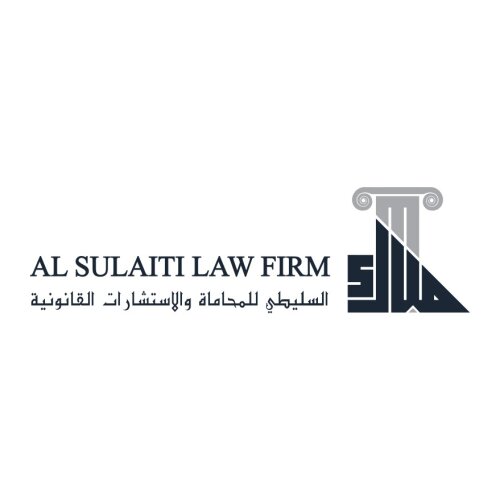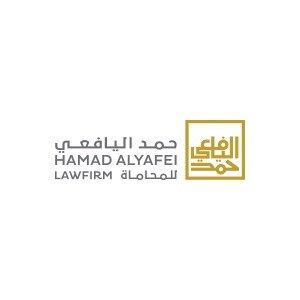Best Mining Law Lawyers in Doha
Share your needs with us, get contacted by law firms.
Free. Takes 2 min.
List of the best lawyers in Doha, Qatar
About Mining Law in Doha, Qatar
Mining Law in Doha, Qatar, refers to the collection of regulations, statutes, and legal principles governing the exploration, extraction, processing, and sale of mineral resources within the country. As a fast-growing economy, Qatar relies on the proper management of its mineral resources, which include both hydrocarbons (oil and gas) and other minerals such as limestone, clay, and gypsum. Mining Law in Qatar is designed to ensure sustainable exploitation, environmental protection, and the harmonious relationship between mining operations and other land uses. The government plays a crucial role in granting exploration and extraction licenses, setting environmental standards, and managing contractual relationships, particularly through the Ministry of Municipality and Environment and the Ministry of Energy and Industry.
Why You May Need a Lawyer
Individuals and companies may need a lawyer with mining law expertise in Qatar for several reasons:
- To secure exploration and mining licenses or permits from authorities
- For negotiating and drafting mining contracts, joint ventures, or partnership agreements
- To resolve disputes over land use, environmental compliance, or contract breaches
- For guidance on regulatory compliance, including environmental, health, and safety obligations
- To manage legal risks associated with cross-border investments or international mining operations
- For representation in litigation or administrative proceedings involving government bodies or third parties
A specialized lawyer can help navigate the complex process of mining regulation, protect your interests, and ensure your activities align with Qatari laws.
Local Laws Overview
Mining Law in Doha, Qatar, is primarily governed by several key legislations and government directives. Mining activities often fall under:
- The Qatar Mining Law and associated executive regulations
- The Environmental Protection Law and related ministerial decrees
- The Investment Law, which sets out rules for foreign ownership and participation
- Labor laws relevant to workforce management in mining projects
Mining rights are usually subject to government approval, with permits required for exploration and extraction. Operators must comply with environmental standards, safety requirements, and labor regulations. In many cases, foreign companies must partner with local firms or operate through joint ventures, as per local investment rules. Violations can lead to serious penalties or revocation of licenses. Additionally, land use and compensation for affected communities are important aspects of mining operations in Doha.
Frequently Asked Questions
What minerals are covered under Qatar's Mining Law?
Qatar's Mining Law covers various minerals, including sand, limestone, gypsum, clay, and rock, as well as hydrocarbons such as oil and gas. The scope and permit requirements may differ depending on the resource.
Who grants mining licenses in Doha, Qatar?
The Ministry of Municipality and Environment typically issues licenses for mining activities, while the Ministry of Energy and Industry is involved in managing hydrocarbon resources.
Can foreign companies invest in mining projects in Qatar?
Yes, foreign investment in mining is permitted, but often requires joint ventures with local partners and compliance with specific investment regulations.
What are the environmental requirements for mining operations?
Mining projects must follow environmental regulations, obtain necessary environmental impact assessments, and implement mitigation measures to minimize damage to the environment.
Are there community compensation or relocation requirements?
In cases where mining affects local communities or their land, the law may require compensation, relocation assistance, or other social impact mitigation measures.
How long does it take to obtain a mining license?
The duration can vary, but the licensing process may take several months, depending on project complexity, required environmental reviews, and governmental approvals.
What happens if a mining operator violates the law?
Violations can lead to fines, suspension, or revocation of licenses, and possibly even criminal prosecution depending on the severity of the infraction.
Can mining licenses be transferred or sold?
Transfers of licenses may be permitted but often require prior government approval and are subject to specific conditions outlined in the law.
What legal protections exist for intellectual property in mining?
Intellectual property such as geological surveys or proprietary technologies may be protected under Qatari IP laws, but you should consult a lawyer for detailed protections applicable to mining data and methods.
Do mining laws differ for hydrocarbons and other minerals?
Yes, hydrocarbons like oil and gas are governed by distinct regulations and production sharing agreements, whereas other mineral resources are subject to the general mining law.
Additional Resources
If you need more information or guidance, consider contacting the following organizations and bodies:
- Ministry of Municipality and Environment
- Ministry of Energy and Industry
- Qatar Mining Company
- Qatar Chamber of Commerce and Industry
- Local law firms specializing in environmental and mining law
These organizations can provide regulatory information, guidance on best practices, or referrals to licensed legal professionals experienced in mining matters.
Next Steps
If you believe you need legal assistance with a mining issue in Doha, Qatar, begin by gathering all relevant documents such as contracts, licenses, and correspondence. Identify the core issues or questions you have. Next, research local law firms or legal consultants who specialize in mining law. Prepare a list of questions or concerns to discuss during your initial meeting. Considering the complexities involved, it is always recommended to seek advice from a qualified legal professional who understands the intricacies of Qatar's Mining Law, investment regulations, and local practices. This will help ensure your interests are protected, your actions are legally compliant, and your project has the best chance of success.
Lawzana helps you find the best lawyers and law firms in Doha through a curated and pre-screened list of qualified legal professionals. Our platform offers rankings and detailed profiles of attorneys and law firms, allowing you to compare based on practice areas, including Mining Law, experience, and client feedback.
Each profile includes a description of the firm's areas of practice, client reviews, team members and partners, year of establishment, spoken languages, office locations, contact information, social media presence, and any published articles or resources. Most firms on our platform speak English and are experienced in both local and international legal matters.
Get a quote from top-rated law firms in Doha, Qatar — quickly, securely, and without unnecessary hassle.
Disclaimer:
The information provided on this page is for general informational purposes only and does not constitute legal advice. While we strive to ensure the accuracy and relevance of the content, legal information may change over time, and interpretations of the law can vary. You should always consult with a qualified legal professional for advice specific to your situation.
We disclaim all liability for actions taken or not taken based on the content of this page. If you believe any information is incorrect or outdated, please contact us, and we will review and update it where appropriate.
















